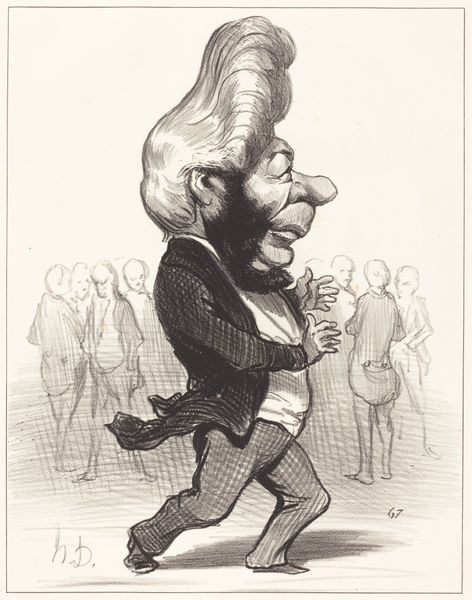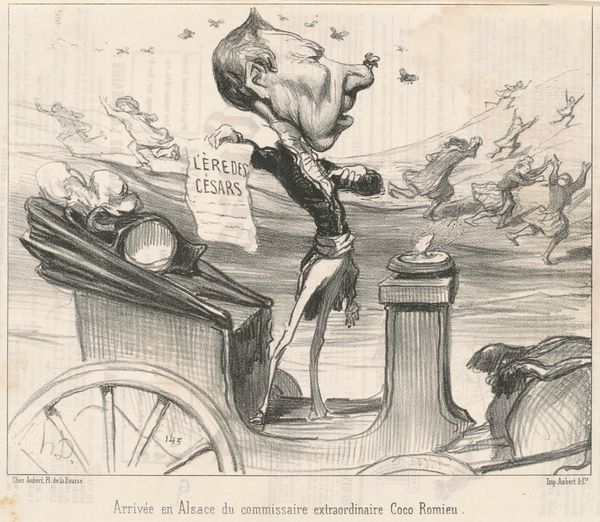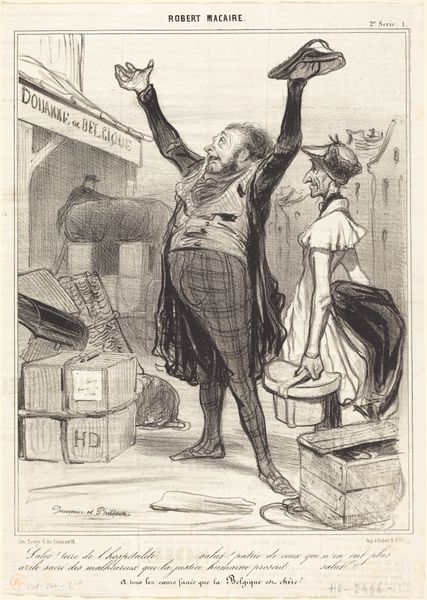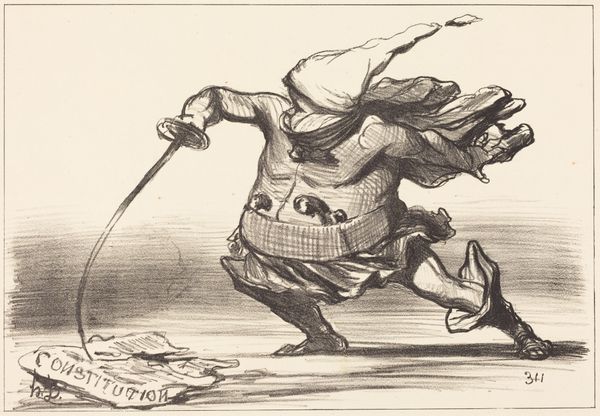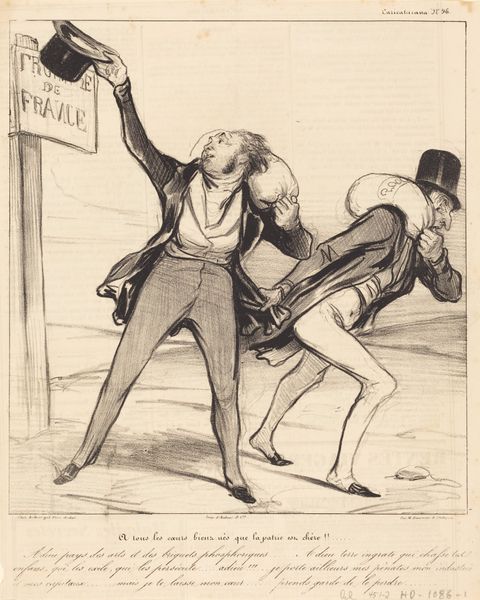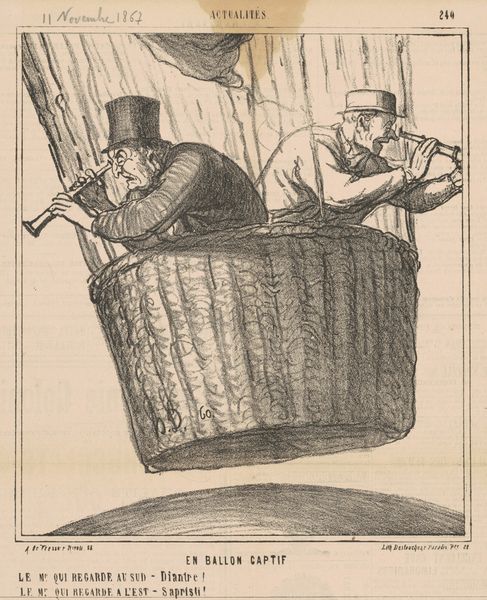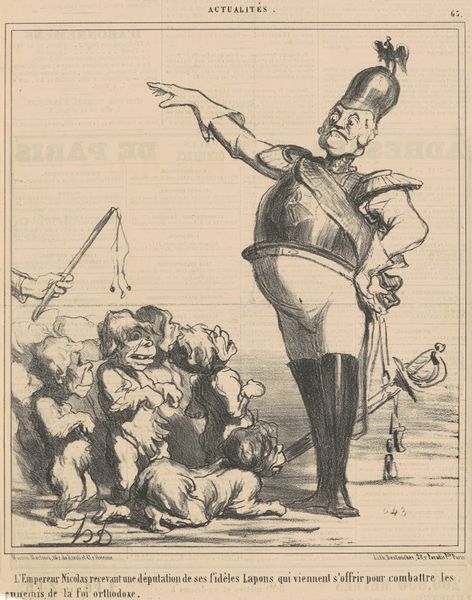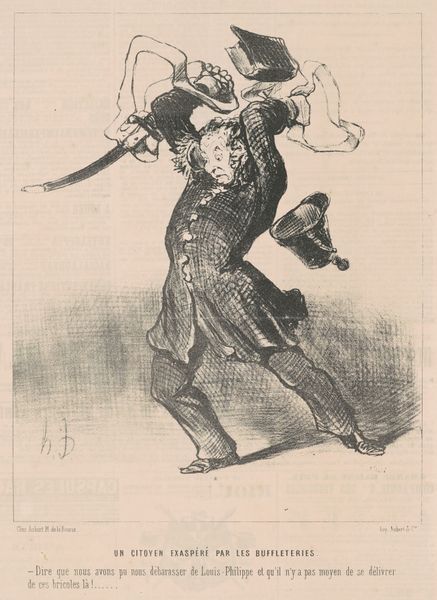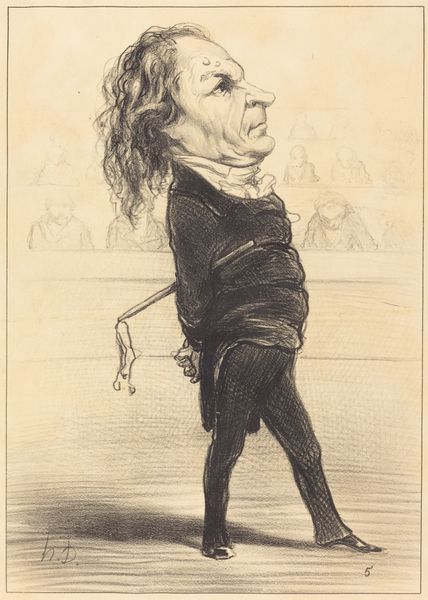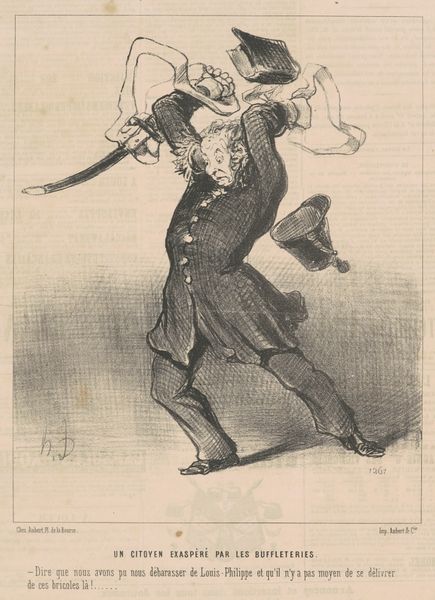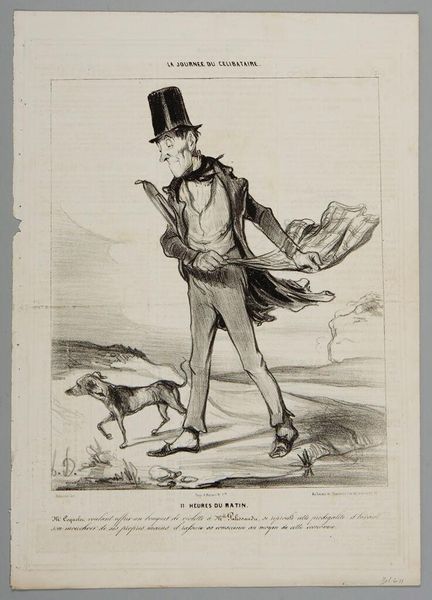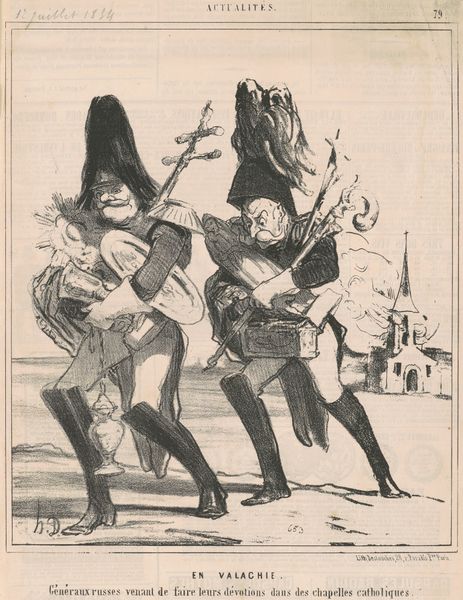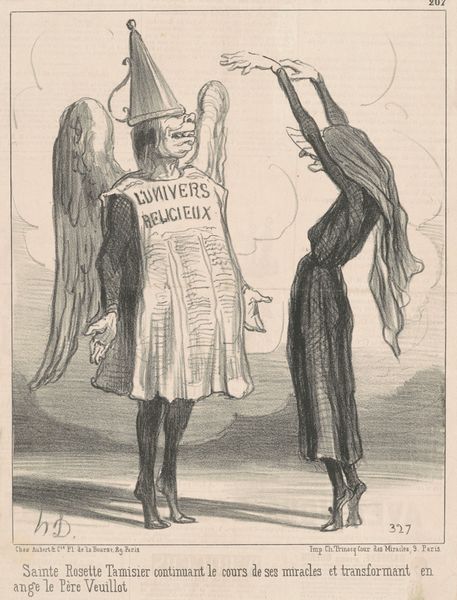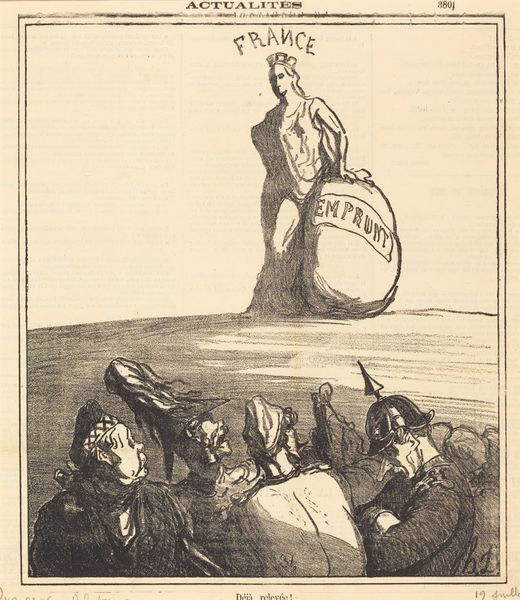
drawing, lithograph, print, paper, ink, graphite
#
portrait
#
drawing
#
narrative-art
#
lithograph
# print
#
caricature
#
caricature
#
figuration
#
paper
#
ink
#
pencil drawing
#
graphite
#
cityscape
#
genre-painting
#
academic-art
Copyright: National Gallery of Art: CC0 1.0
Editor: Here we have Honoré Daumier's "Une Gloire éteint l'autre", a lithograph from around 1849. There's this feeling of almost cartoonish oppression, with the man in power literally placing a dunce cap on another. How do you interpret this work, keeping in mind the historical context of France at the time? Curator: Given the materiality of the print - mass produced, affordable - and Daumier's history of political satire, I read this as a critique of power structures and their reliance on public humiliation. The lithographic process itself enabled wider dissemination of these ideas to the masses. Who are these men? Editor: Well, I don’t know exactly *who* they are. But from what I've read, Daumier often used his caricatures to lampoon the bourgeoisie and political figures, right? So, it's probably a depiction of the upper class stifling intellectual freedom, using the 'glory' of their status to overshadow others. Curator: Precisely! The labor involved in creating and distributing these prints is crucial to consider. It challenges the very notion of ‘high art’ that the elite sought to uphold. Daumier used printmaking as a tool for social commentary, engaging directly with issues of class and power dynamics of the time. The lithographic stone and the printing press become instruments of rebellion in this context. Look closely at the hatch marks and consider the kind of skill necessary. What purpose do they serve beyond the immediately representational? Editor: It sounds like the *process* was inherently political for Daumier. I didn't quite think about the mass production as part of the point he was trying to make. Curator: Exactly. It reminds us that art is not separate from the material conditions of its creation and consumption. It has really broadened my perspective regarding art as a catalyst for change.
Comments
No comments
Be the first to comment and join the conversation on the ultimate creative platform.
